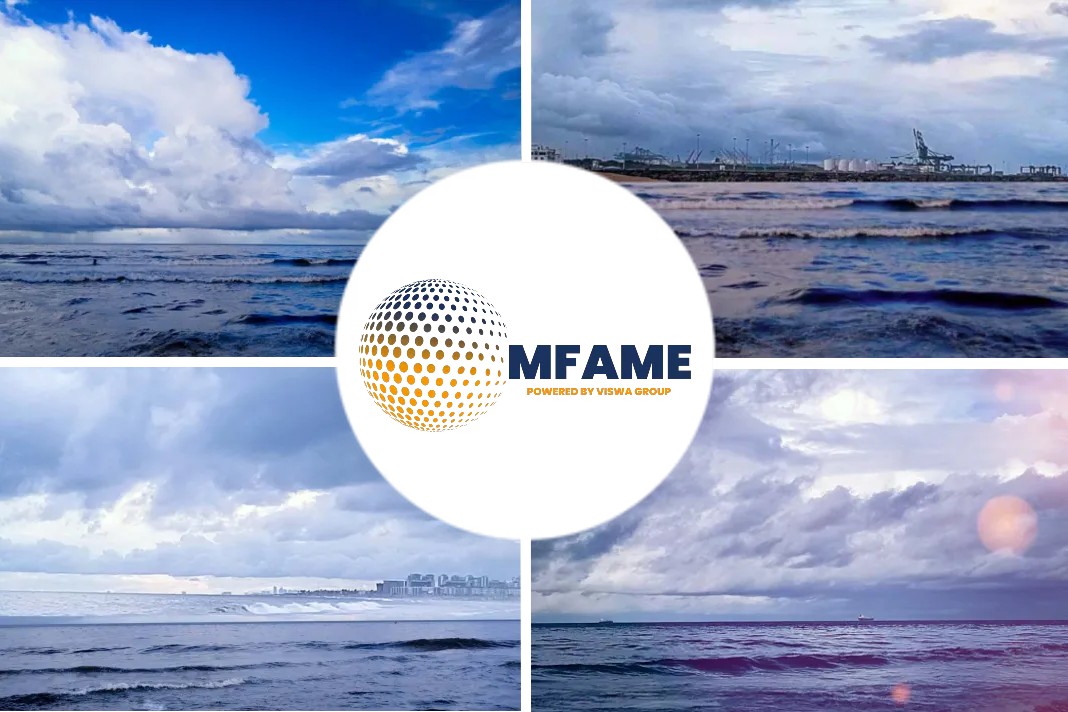- German government starts a unique project to optimize scrubbers for better air quality.
- Saacke Marine has been roped in for the project which targets particulate emission reduction by 90%
- The Project SAARUS will run till May 2022 and has a tota; funding of €4.9 million
- Test bench marine diesel engines are installed with Saacke Scrubbers for trials, after whose success field prototype will be in place.
- Experts believe that there are appetite and interest in this project, especially in the cruise industry.
According to a Ship Insight report, the Bremen-based scrubber maker Saacke Marine Systems has bagged the lead role in the German government’s new project aimed at optimizing scrubbers for particulate matter (PM) removal.
What is it?
The SAARUS joint project has set itself the goal of reducing not yet regulated particulate emissions by up to 90% in addition to the IMO target for reducing SOx emissions, which has been tightened up this year. The abbreviation SAARUS stands for (in German) “Optimisation of exhaust gas scrubbing technology for the reduction of environmentally harmful ship emissions“.
What’s in the project?
Two universities, a research institute and six industrial companies under the leadership of Saacke are involved. Each project partner contributes their respective expertise – from the use of particulate filter technology in the scrubber to specially tuned water treatment and measurement sensors for engine control. “The collaboration of these technology areas with regard to maritime exhaust gas scrubbing is so far unique in this form”, emphasized Nils Homburg, Exhaust Gas Cleaning Department Manager at Saacke.

The project, which will run until the end of May 2022, will receive around €3.5 million in funding from the German Federal Ministry for Economic Affairs and Energy and has a total volume of around €4.9 million.
Optimizing Scrubbers To Improve Air Quality
“The aim of optimizing exhaust gas purification is to improve air purity on the one hand and to keep the oceans clean on the other”, said Homburg. The focus of the emission reduction is very small particles in particular, which have hardly been reduced by previous processes.
Aims & Objectives of The Project
These are the specific goals:
• Improved separation of up to 90% of both the total particle mass and the particle fraction 2.5 to 0.1 µm (PM2.5)
• Reduction in the number of very small particles (1.0 to 0.1 µm) by 90%
• Compliance with environmental standards in the field of water policy (2008/105/EC) and the Water Framework Directive
- In addition, pollution due to incomplete fuel combustion will also be investigated.
Saacke Scrubber Test Bench
In the coming months, a Saacke scrubber will be installed on an existing test bench for marine diesel engines at the University of Rostock, which will be optimized for the separation of fine dust. The test setup corresponds to the future environment onboard.
Various filter systems will be installed downstream for further dedusting, and the wash water will also be treated and cleaned. Finally, a detailed analysis of the exhaust gas and the wash water will be carried out to check the effectiveness of the measures. As a result, ship emissions will be further reduced despite the use of conventional and thus inexpensive fuels.
Field Prototype Transfer Soon
Once the project has been completed, the findings will be transferred to a field prototype. The experts involved assume that interest in scrubber systems optimized for fine dust separation will increase – especially in the booming cruise sector.
Project Partners
The project partners are
- Project Coordination and Scrubber Technology: Saacke Marine Systems
- Engine: Chair of Reciprocating Engines and Internal Combustion Engines (University of Rostock) & AVL (Anstalt für Verbrennungskraftmaschinen List) – Institute for Internal Combustion Engines List
- Water Treatment: Leibniz-Institute for Baltic Sea Research in Warnemünde & GEA Group
- Filter Technology: RVT Process Equipment GmbH & SULT GmbH – Dust and Air Technology
- Air/Particles: Institute of Chemistry (University of Rostock) & University of the Federal Armed Forces Munich & SICK Engineering GmbH
Did you subscribe to our daily newsletter?
It’s Free! Click here to Subscribe!
Source: Ship Insight















